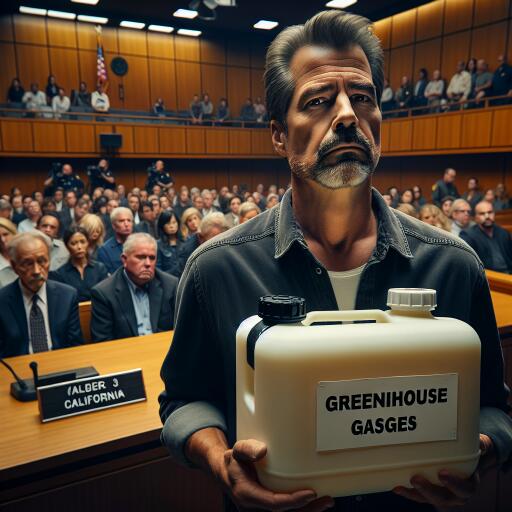
California Resident Faces Historic Charges for Smuggling Harmful Greenhouse Gases
In a groundbreaking case, a man from San Diego, California, has been charged with the illicit importation of greenhouse gases into the United States. This incident marks the first enforcement of its kind under new stringent environmental protection laws.
The individual, identified as Michael Hart, was detained for violating the American Innovation and Manufacturing Act of 2020. This law demands that anyone importing hydrofluorocarbons (HFCs) into the country obtain the necessary permits from the Environmental Protection Agency (EPA).
HFCs, which are prevalent in multiple everyday applications such as refrigeration, air conditioning, insulation materials, fire extinguishing systems, and aerosols, pose a significant threat to our environment. These compounds have a greenhouse effect many times stronger than carbon dioxide, contributing significantly to the Earth’s warming atmosphere.
The Department of Justice reported that Hart acquired refrigerants in Mexico, concealing them in his vehicle beneath a tarpaulin and various tools to cross into the United States undetected. Once smuggled across the border, Hart advertised and sold these substances through online marketplaces like OfferUp and Facebook Marketplace, turning a profit from his illegal venture.
Such actions not only breach federal law but also sabotage global efforts to mitigate climate change, as per the Kigali Amendment to the Montreal Protocol—an international treaty aiming to reduce the consumption and production of HFCs drastically. The Protocol has set ambitious targets, endeavoring to cut down these pollutants by up to 85% by the year 2047. The United States, along with the wider international community, has committed to this agreement, underscoring the gravity of Hart’s offences.
The charges against Hart also include the unauthorized import of HCFC-22, another potent greenhouse gas known for its adverse effects on the ozone layer. The Clean Air Act tightly regulates this substance due to its ozone-depleting properties. Notably, countries are subject to varying phase-out schedules based on their development status, with developing nations often given more extended periods to curtail their use of such chemicals. This context adds another layer to the legal and environmental implications of Hart’s actions.
This case shines a spotlight on the critical importance of adhering to environmental laws and regulations designed to protect our planet. It serves as a stark reminder that the fight against climate change involves addressing issues on all fronts, including the illegal trade in substances that harm our atmosphere. As the legal process unfolds, this landmark case may set a precedent for future actions against the smuggling of environmentally hazardous materials.
The commitment of the United States to international environmental agreements and the enforcement of domestic laws against smuggling harmful substances underscore the nation’s dedication to combating climate change and protecting the global ecosystem for future generations.





Leave a Reply